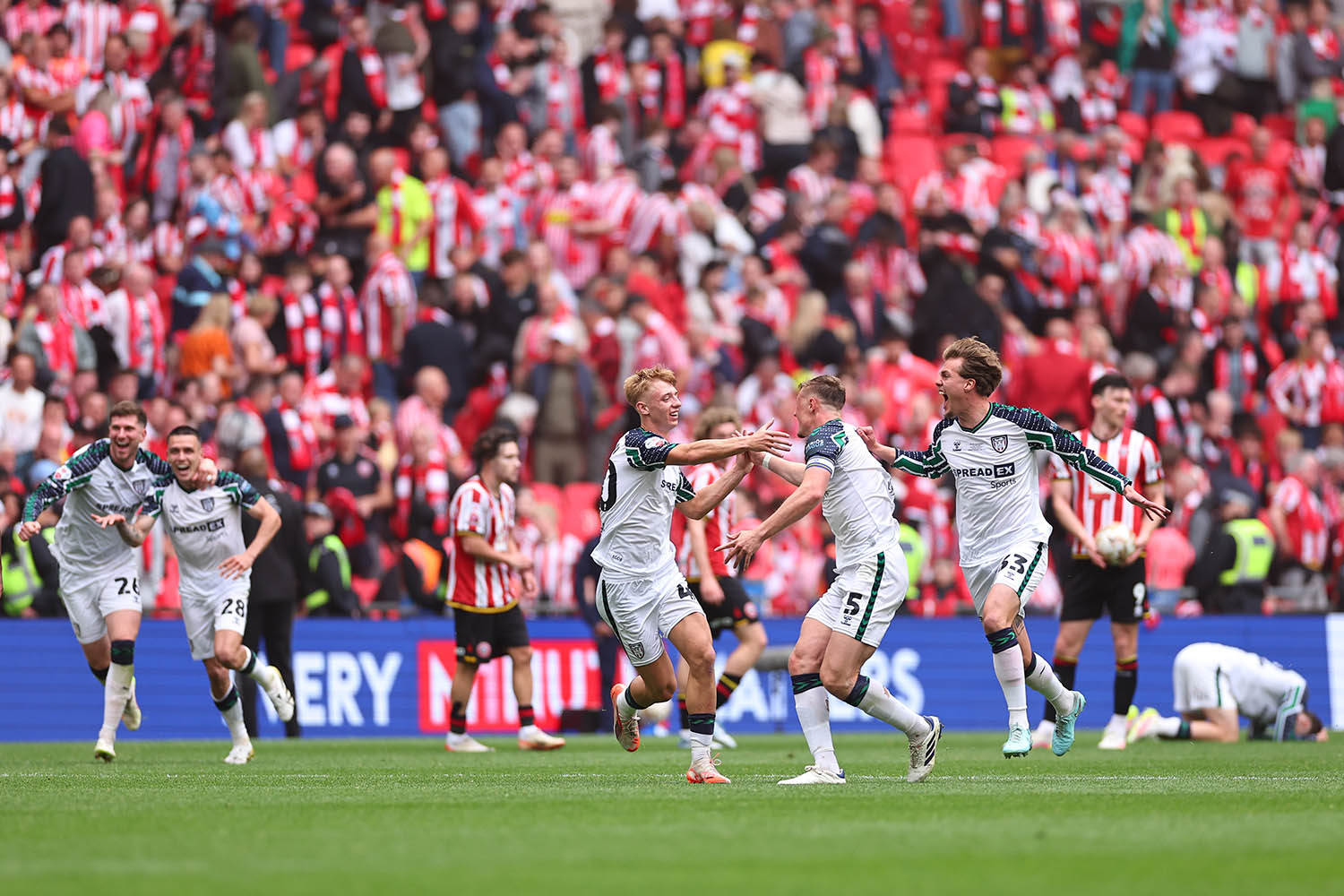Tom Watson’s Sunderland career will be over, really, before it had even begun. He has played just a couple of dozen senior games for his local side, his boyhood team, the club he joined as a child, but he is already preparing for his next step. As soon as the transfer window opens, he will join Brighton, barely two years after he made his debut.
As much as it sounds like a colossal exaggeration, though, he will leave as quite possibly one of the most significant figures in the club’s long history. Watson will forever be remembered as the man who scored the goal that beat Sheffield United to win the Championship play-off final, the Horden boy who ended Sunderland’s long and desolate trudge through the wilderness, the £130 million kid.
There is no more brutal game in football than the Championship’s showpiece. All elite sport is cut-throat, of course: second is first last and all that. Ruthlessness is, for those gifted enough to turn a pastime into a career, part of the price of admission.
But even by those standards, this is an uneasy, almost cruel spectacle. The prize on offer is, in theory, promotion, but such is the financial chasm between the Premier League and the EFL that it is, now, far greater than that. It is an existential transformation. It is jobs and prosperity and civic pride. It is a chance to place both a team and a place on the world stage.
And while that might be part of what makes the game so compelling, it is also deeply unhealthy. There is no reason to diminish the spoils of victory. But at the same time there is absolutely no reason for the cost of defeat to be so great.
For Sheffield United, the difference was no more than a single bad touch: Kieffer Moore miscontrolled a ball, as the game was well into injury time and Wembley girded itself for another 30 minutes of tension; Watson picked it up, and placed it, with staggering precision, into the corner of Michael Cooper’s goal. It is not ideal that the curtain between two worlds should be quite so fine.
That is the other defining factor around the playoff, of course: that it is a game that exists only in terms of what it means, never for what it is. No sooner has the confetti been cleared and the smoke from the flares evaporated than discussion turns to how the victorious team will cope with life in the rarefied air that awaits.
That conversation feels especially freighted this season. For the second year in a row, the three teams promoted to the Premier League have been unceremoniously relegated. This time, Ipswich, Leicester City and Southampton, in truth, went down with a whimper. The bottom of the table has been settled for months.
The fans kept coming, kept believing, in the face of all available evidence
The fans kept coming, kept believing, in the face of all available evidence
The auguries for their replacements – Leeds United, Burnley and now Sunderland – are not, then, especially encouraging. Strictly speaking, Regis Le Bris’ team were a distant fourth in the Championship. They have plenty of young promise: not just Watson but Chris Rigg, Jobe Bellingham and the other scorer, Eliezer Mayenda. They play smart, neat, attractive football.
They also have the look and the scent of easy meat for the apex predators that await. Once the initial euphoria has diminished, Sunderland’s fans would be forgiven for harbouring just a little dread at what might come next. There will be many outside the club, outside the city, who will feel that all this game really settled was the identity of one of next season’s relegated trio.
Newsletters
Choose the newsletters you want to receive
View more
For information about how The Observer protects your data, read our Privacy Policy
That does rather disregard quite how much money even a single season in the Premier League is worth, of course, quite what a profound effect it can have on a club’s long-term horizons. But even if it does prove to be true, the tendency immediately to ask what comes next is curiously joyless. There are times when tomorrow can wait, when it is worth relishing today.
Sunderland’s seven years of exile from the Premier League have been, by and large, miserable. There were three seasons in the ignominy of League One. There was a documentary series, Sunderland ’Til I Die, that broadcast the frustration of following the club to the world; the show’s pathos, the unrequited yearning of the team’s fans, served in part as inspiration for Welcome To Wrexham.
There were days and weeks and months when it felt as though the only way was down, that the club was cursed never to recover. Through it all, the fans kept coming, kept believing, sometimes in the face of all evidence.
What kept drawing them back was not the idea that one day they might be promoted again, or that they might be able to spend colossal sums of money on players in the transfer window, or that they would once again see Manchester City and Arsenal and Liverpool at the Stadium of Light.
It was the hope, the vain hope, of a moment: one goal, one second that made it all worthwhile, as reward for their suffering and their loyalty and their love. That, more than anything, is what Watson gave them: the chance to see Mayenda hurl himself into the crowd, to see Luke O’Nien dancing with his arm in a sling, the chance to enjoy today, regardless of what tomorrow might bring.
Photograph by Robbie Jay Barratt - AMA/Getty Images

